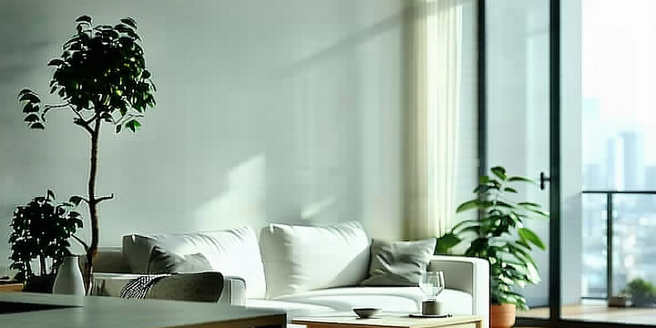Comparing Studio Vs One-bedroom Apartments

Space and Layout Differences
Studio apartments typically combine the living, sleeping, and kitchen areas into a single open space. This layout maximizes the use of available space, making it ideal for individuals who embrace a minimalist lifestyle or who prefer open-plan living. One-bedroom apartments, on the other hand, offer separate rooms for sleeping and living areas, providing more private spaces within the apartment. This separation can create a more structured environment allowing for distinct functional zones such as a designated office space or a cozy bedroom retreat. The additional walls of a one-bedroom unit can lend a sense of versatility, ideal for those who need more room to breathe and arrange their furniture strategically. The choice between a studio and a one-bedroom apartment ultimately depends on one’s lifestyle preference and space requirements.
Cost Comparison and Affordability
When comparing costs, studio apartments are generally more affordable than one-bedroom units. They typically have lower rent prices due to their smaller size and reduced living space, which can lead to savings on utilities like heating and electricity. This affordability makes studios an attractive option for individuals looking to cut costs or for young professionals just starting their careers. One-bedroom apartments, while offering more space and privacy, often come with a higher price tag. The differences in rental prices can vary significantly depending on the location, building amenities, and overall property market conditions. Prospective renters need to weigh their budgetary constraints against their need for additional space, privacy, and lifestyle preferences. Choosing between a studio and a one-bedroom apartment often involves balancing affordability and desired living conditions.
Privacy and Noise Levels
Privacy is a significant factor when considering studio versus one-bedroom apartments. Studios, lacking internal dividing walls, may compromise privacy, especially if shared with a partner or roommate. Noise can easily travel throughout the space, making it challenging to find quiet zones for work or relaxation. Conversely, one-bedroom apartments offer separate areas, allowing for better noise control and increased privacy. For tenants sensitive to noise or those who work from home, the ability to separate living and sleeping spaces can be invaluable. The layout of a one-bedroom unit allows individuals to host guests in one area while maintaining their private space in another. When sharing living quarters, the additional separation provides buffer zones to mitigate disturbances. Privacy considerations are crucial in choosing the right apartment that meets one’s lifestyle needs.
Location and Accessibility
The choice between a studio and a one-bedroom apartment can also be influenced by location and accessibility. Studios are often situated in highly sought-after urban areas where space is at a premium, providing proximity to city amenities, public transport, and cultural attractions. This convenient positioning can significantly enhance the living experience, especially for city dwellers who value living close to work and social venues. One-bedroom apartments might be more prevalent in suburban or less densely populated regions, offering larger living spaces with potentially lower costs. When selecting an apartment, tenants should consider their daily commute, the importance of neighborhood amenities, and how these align with their lifestyle needs. Accessibility to recreational facilities, shopping centers, and healthcare can be decisive factors that impact the desirability of a living arrangement.
Amenities and Features
Amenities can greatly influence the decision between choosing a studio or a one-bedroom apartment. Some studio apartments, despite their smaller size, may offer high-end features such as modern appliances, smart home technology, and access to building facilities like gyms or rooftop terraces. One-bedroom units might include additional in-unit amenities like washers and dryers, additional storage space, and sometimes even a balcony or patio space. The choice may come down to which features are prioritized by the tenant, such as whether they value having more space or access to luxury building amenities. It’s essential to understand what amenities are included in the rental price and which features are most critical to enhance daily living. These features can significantly sway the appeal and functionality of either type of apartment and should factor into the decision-making process.
Who Should Consider Each Option?
Deciding between a studio and a one-bedroom apartment often depends on individual lifestyle needs and future plans. Studios are ideal for singles or minimalists who appreciate open living arrangements and wish to save on rent. They are also suitable for urban dwellers who prioritize location over space. One-bedroom apartments might better suit couples, professionals needing a home office, or those who value privacy or additional space for entertaining. Families or pet owners may find the separation of rooms more accommodating. Anyone considering a studio should be comfortable with a compact lifestyle, while those opting for a one-bedroom should assess if the higher rent aligns with their budget. Both options have their respective advantages, and the best choice will reflect the needs, financial situation, and future prospects of the individual or household.